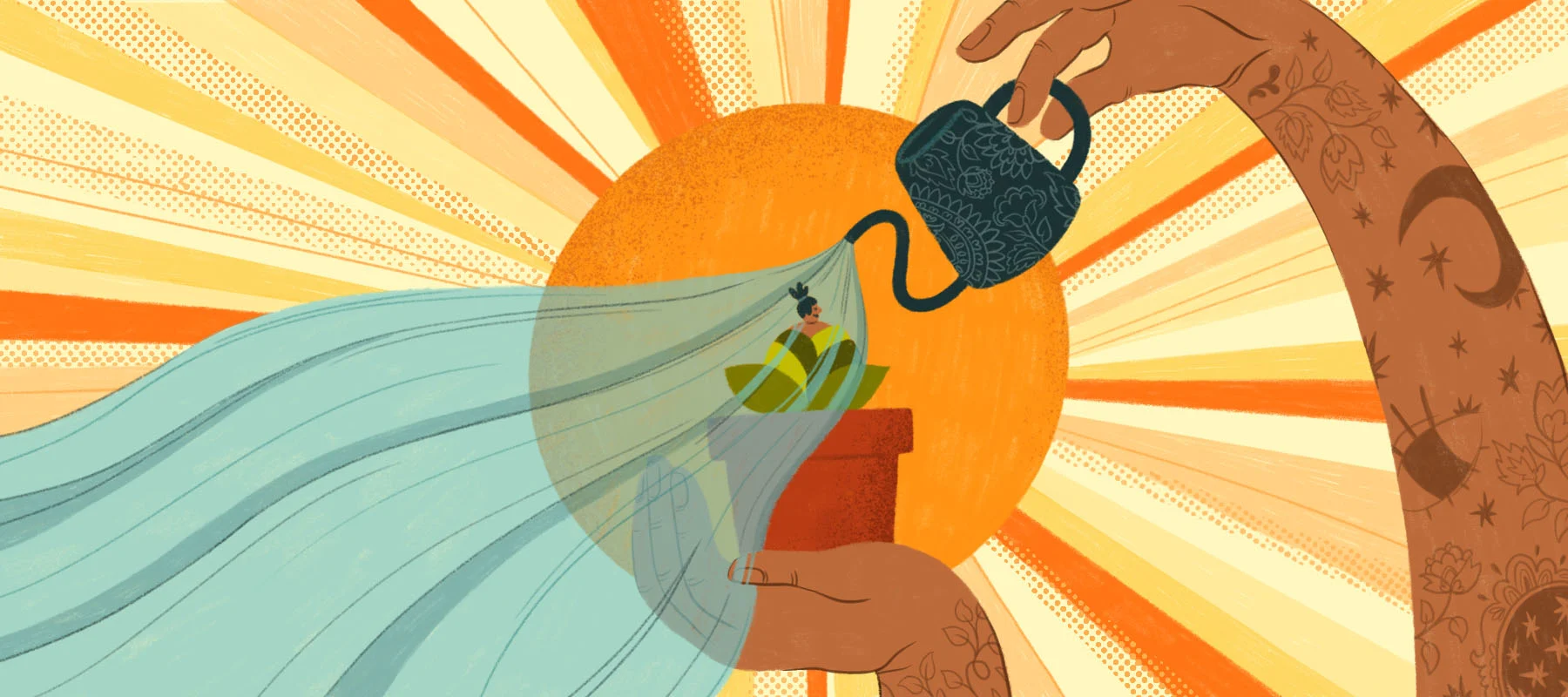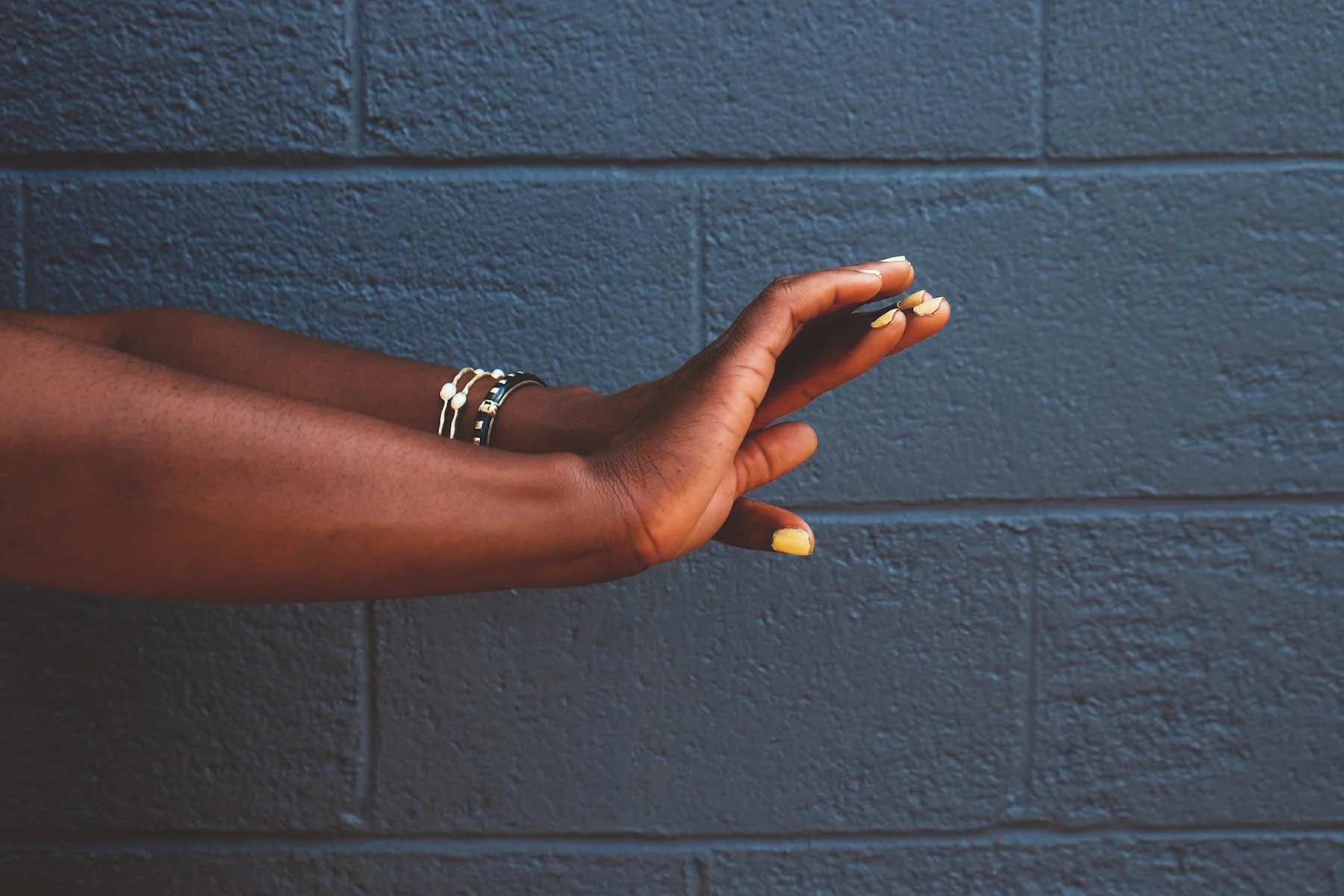With Self-Care, the Process Is the Point
- 6 August 2020
- ByLoré Yessuff

How will you take care of yourself today?
My counselor usually concludes our heavier sessions with this reflection prompt. Even the annoying delay of Google Hangouts fails to interrupt the heartfulness in her voice. And her eyes, gleaming with compassion as my demeanor shifts into that post-cry calm. This is one of those routine therapy moments that shouldn’t be so striking. Of course, a mental health professional is bound to ask about my coping tactics as I finish weeping in front of her. Though, standard as it might be, this call to action - its simplicity, its softness - pauses everything. And then soon enough, the chomping in my chest sweetens to a tickle and I remember to breathe again.
There isn’t much to say about self-care that hasn’t already been said. The Internet contains a multitude of Insta-poetry, think pieces, and inspirational videos about this topic. Currently, there are over 31 million posts on Instagram with the hashtag selfcare and over 45 million with the hashtag selflove. No matter the sway of your algothrim, it is likely that this content has circulated through your feed. The insightful threads from therapists, the quirky memes, the vulnerable finsta reflections of your favorite URL companions, or even the sponsored material of influencers.
#selfcare, #selfcare, #selfcare.
The sentiment is everywhere. It permeates our society both online and offline.
A recent Pew Research Center study revealed that millennials invest more in personal growth than their parents and grandparents. However, our culture’s obsession with wellness did not begin with face mask illustrations or the Goop Lab. Self-care is just the emo child of self-help and self-help is likely the child of another once-trendy term to describe personal improvement. Technically, the terms differ a bit in meaning. Self-care focuses on the needs of the self while self-help emphasizes the act of transforming into a better self. But at the root both ideas center on a universal value: individual goodness.
Humans have a long, long history of trying to be better. The global popularity of religion and spirituality demonstrates this quite clearly. And even people who opt out of spiritual traditions seek growth in their own ways. I’m not a psychologist or philosopher, but it feels safe to say that most, if not all, people yearn to be virtuous according to whatever standards we subscribe to. We pray to god(s) or make manifestations or wish on stars in hopes of witnessing something extraordinary within and around us. We all long for goodness, we all long to be good.
In mid-May, R&B musician Nick Hakim released his second album, Will This Make Me Good. The song WTMMG, an acronym of the project title, explores Hakim’s relationship to mental health medication. The chorus, as well as the whole album, brings up a chilling question I assume many of us grapple with at times:
Will this make me good? Will this shit make me good? Will this make me good? Will this shit make me good?
It's almost as if Hakim is begging some spiritual force for relief. The song lacks a clear answer to the question which makes it all the more relatable. There is something so pure about imploring if a routine will lead one to the desired self. The activity referenced in the track, taking medication, could easily be replaced with various other things. Will this hairstyle make me good? Will this green juice make me good? Will this prayer make me good? Will this long walk make me good? Will this astrology app make me good? All of which could just be translated to: Will this yearning to be good make me good?
I find myself pondering variations of this question all the time. I beg and beg the earth to guide me towards that secret ritual, product, or belief that might help me finally be more compassionate, more intellectual, more worthy. And a result, I end up pursuing self-care because of shame and the false idea that I’m lacking wholeness.
The words of prominent feminist thinkers such as Audre Lorde and adrienne maree brown are reframing the way I think about the purpose of self-care. In brown’s book Pleasure Activism, she uses Audre Lorde’s essay “The Uses of the Erotic” as a point of reference for the whole collection. Both Lorde and brown emphasize how necessary it is to live in a manner that affirms my value as opposed to trying to prove that I have any. In lieu of this, instead of practicing wellness activities out of shame, I am trying to take care of myself as a radical act of validating my inherent worth. I don’t want to go on long bike rides to chase goodness, rather I want to bike during sunset to remember that I am good and good enough.
Although, lately, it has been difficult to remember this. Aside from the never-ending national chaos, my personal slice of the world is super hectic at the moment. I’m experiencing a swirl of major life changes and though these events are mostly positive, the fast pace overwhelms me.
In non-COVID times, my care practices would be the relief I rely on. However, quarantine distorts the sense of time in a way that is disorienting. Each week is drastically different. Some days fade into the other slowly with melancholic undertones and some days are quick, breathless, without any room to feel anything fully. It's like emotional whiplash. And, there are only so many bubble baths I can take or poems I can read before the pandemic dread inevitably sets in again. Self-care, which was once alleviating and pleasurable, now feels redundant and, at times, useless.
Considering the state of everything, I’m struggling to make space for my own wellness. Circumstances make it difficult to remember my value or at the bare minimum, give myself what I need. Just this afternoon, I stood in line at my local bodega and nearly started panicking while thinking of the projects I need to complete and the unread messages I need to respond to and the toilet paper I need to pick up from the store. My to-do list feels impossibly endless and it seems counterproductive to relax.
But this is the purpose of self-care - to prioritize showing up for ourselves even when it feels like a tedious, pointless chore.
As Audre Lorde so poignantly said, “caring for myself is not self-indulgence, it is self-preservation, and that is an act of political warfare.” Her words remind me how urgent it is to consistently nurture myself, especially as Black woman.
However, I would go even further to say that caring for the self is both an act of self-preservation and self-indulgence. Care, whether it is talking to a therapist or taking the day off, should be both helpful and satisfying.
And this is the essence of taking care - to give way to the pockets of pause that radical gentleness brings us, to take a break, to nap, to go on another long walk, to remember our inherent goodness which is to remember needs and desires, to remember and return to the self before taking the next step.
How will you take care of yourself today?
Header illustration by Nicole Medina.
6 August 2020
Words by:Loré Yessuff
Tags
- Share
